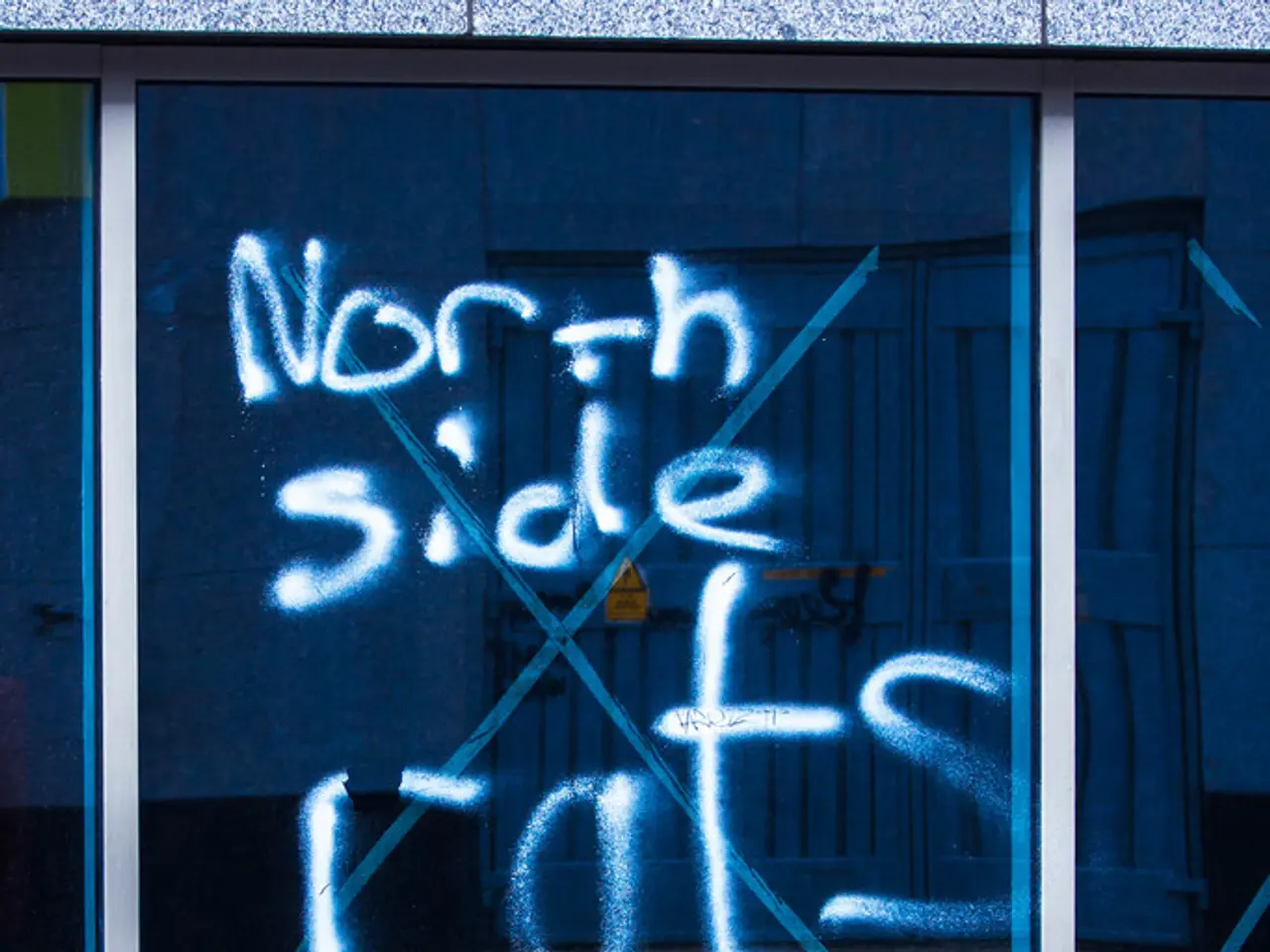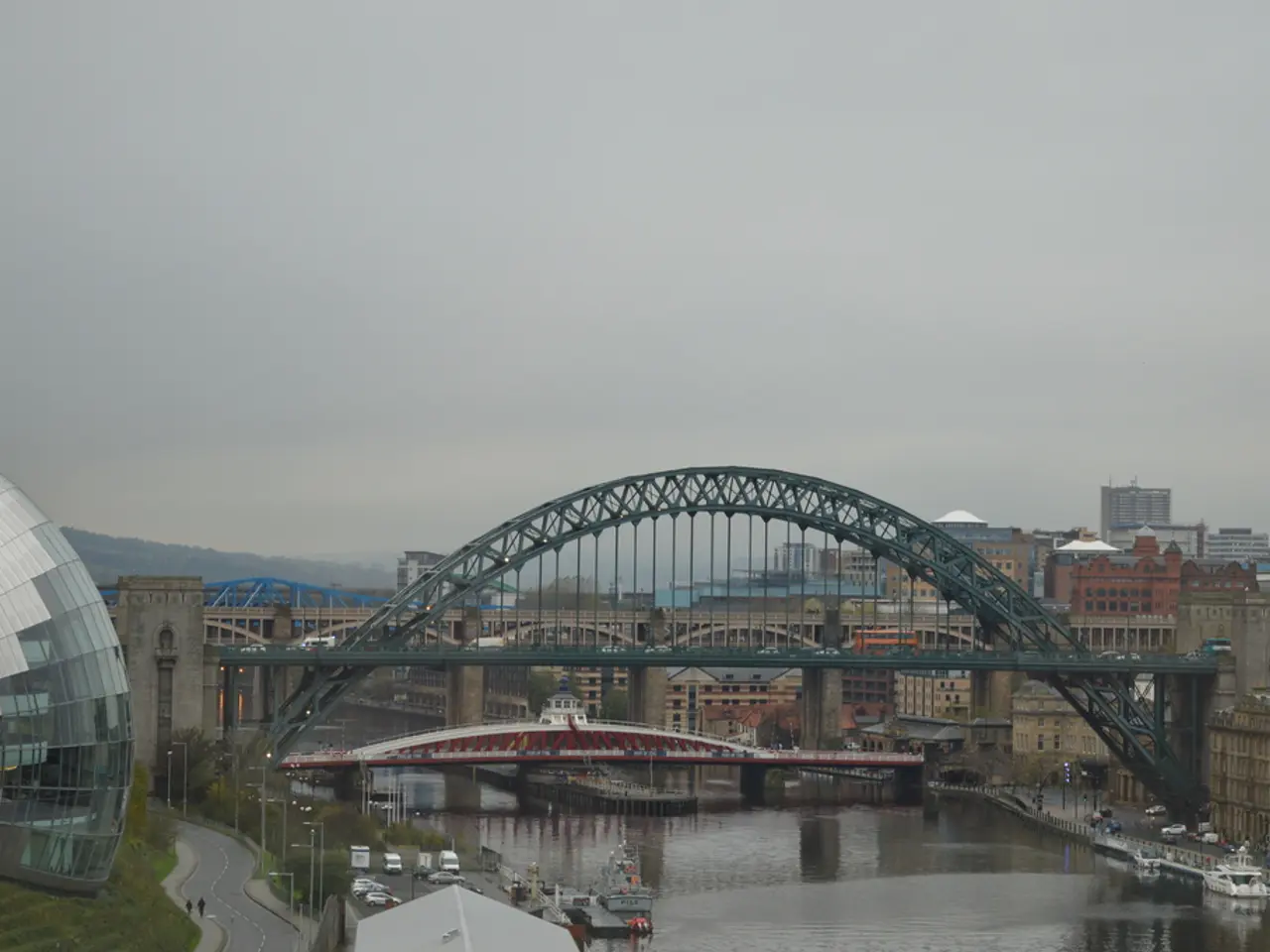Eastern border crossing points in Latvia potentially face restrictions for several months.
The year 2025 has seen a significant increase in illegal border crossings at the Latvia-Belarus border, with a total of nearly 5,946 persons stopped from illegally crossing by the end of June, compared to lower numbers in previous years.
According to the State Border Guard Service of Latvia, more than 5,534 attempts to cross the border illegally were prevented from January to June 25, with the number continuing to rise. On specific dates such as June 28 and June 30, border officials reported stopping 69 and 108 persons, respectively, from illegal crossings.
The migrants attempting to enter Latvia are primarily third-country nationals, primarily from Somalia and Afghanistan, who travel from their home countries through the United Arab Emirates to Russia, then Belarus. They often aim to use Latvia as a gateway to Western Europe, particularly Germany.
In response to this challenge, Latvia has enhanced border guarding and controls to secure the integrity of the state border and national security. The State Border Guard has actively detained offenders, refused entry to suspected persons, and carried out administrative penalties for violations of residence conditions. Some migrants have been admitted for humanitarian reasons, with 12 people admitted as of June.
The Ministry of the Interior is currently assessing the scope, duration, and justification for restrictions at Pāternieki, Terehova, and Grebņeva border checkpoints. The Pāternieki point, currently the only open border crossing point between Latvia and Belarus, was reopened on Sunday evening after a temporary closure due to a group of foreigners attempting to cross the border illegally.
Belarusian dictator Alexander Lukashenko has been reported to brag about flooding the European Union with illegal migrants in response to sanctions imposed upon his regime. The Border Guard closed the Pāternieki crossing point to prevent a possible escalation of events, marking the first time a border checkpoint has been closed immediately by the Border Guard.
Sources: [1] BBC News (2025). Migrants: Latvia-Belarus border crisis explained. [online] Available at: https://www.bbc.co.uk/news/world-europe-61253317 [2] The Baltic Times (2025). Latvia: More than 5,500 migrants stopped at the border since start of the year. [online] Available at: https://www.baltictimes.com/latvia_more_than_5_500_migrants_stopped_at_the_border_since_start_of_the_year/ [3] LETA (2025). More than 5,500 migrants stopped at Latvia's border since the start of the year. [online] Available at: https://www.leta.lv/en/more-than-5500-migrants-stopped-at-latvias-border-since-the-start-of-the-year/244466/ [4] The New York Times (2025). Latvia Braces for Wave of Migrants from Belarus. [online] Available at: https://www.nytimes.com/2025/06/15/world/europe/latvia-belarus-migrants.html
- The European Union (EU) has been closely monitoring the Latvia-Belarus border crisis, a significant increase in illegal border crossings, due to war-and-conflicts and politics in the migrants' home countries, particularly Somalia and Afghanistan.
- This increase in migration has been a general news topic, with reports detailing the migration policy-and-legislation changes implemented by the government in response to the crisis.
- One such change includes enhanced transportation controls to secure the state border, with the State Border Guard Service taking active measures to prevent illegal crossings.
- The media, including radio, television, and online platforms, have reported on the government's efforts to control the border, including the temporary closure of border checkpoints such as Pāternieki.
- Interestingly, the Belarusian government, led by dictator Alexander Lukashenko, has been accused of intentionally flooding the EU with illegal migrants as a form of retaliation against sanctions.
- In the realm of crime-and-justice, there have been administrative penalties for violations of residence conditions, and some migrants have been detained for offenses related to illegal border crossings.
- Society, both locally and globally, has been engaging with this issue, debating the humanitarian aspects and the need for a balanced approach to immigration, particularly in relation to the state's responsibility towards migrants seeking asylum.





